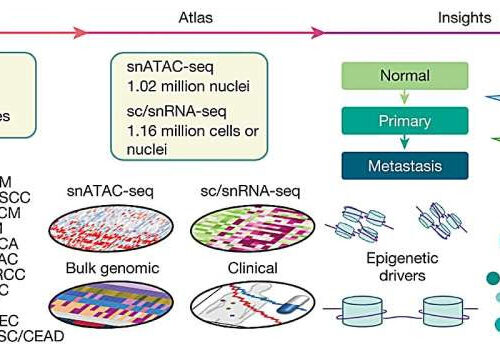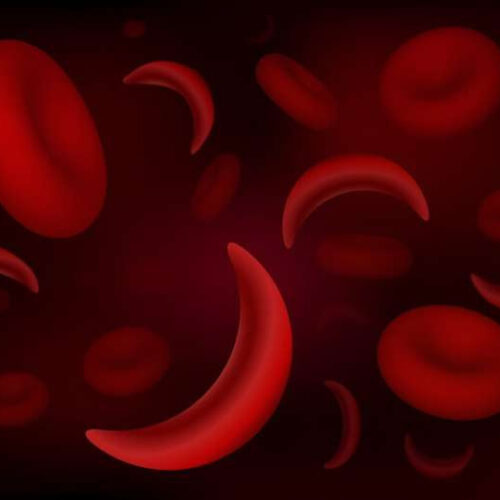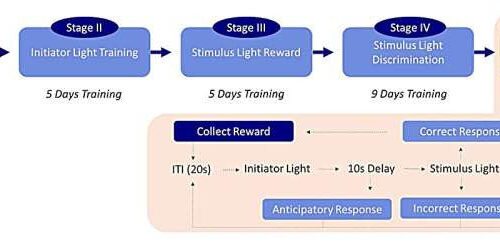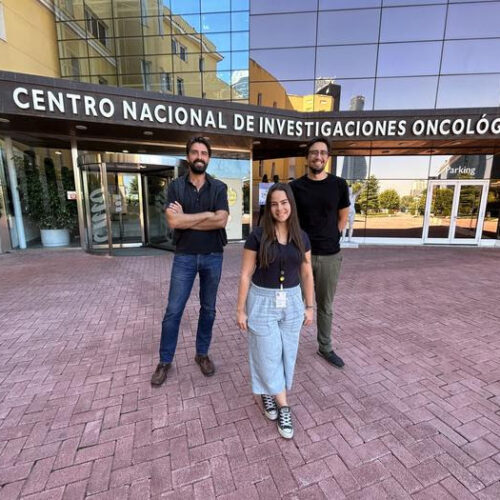Nancy A. Melville November 06, 2023 PHOENIX — Children with Duchenne muscular dystrophy (DMD) treated with the only gene therapy to date to be approved for treatment of disease in the United States show sustained maintenance of motor function after 4 years, compared with untreated patients who showed significant decline over the same time period, new research...
Category: <span>Genetics</span>
187 new genetic variants linked to prostate cancer found in largest, most diverse study of its kind
by Keck School of Medicine of USC Credit: CC0 Public Domain A globe-spanning scientific team has compiled the most comprehensive list of genetic variants associated with prostate cancer risk—451 in all—through a whole-genome analysis that ranks as the largest and most diverse investigation into prostate cancer genetics yet. The research, led by the USC Center for...
Previous genetic association studies involving people with European ancestry may be inaccurate
by NIH/National Human Genome Research Institute Researchers have found that previous studies analyzing the genomes of people with European ancestry may have reported inaccurate results by not fully accounting for population structure. Credit: Darryl Leja, National Human Genome Research Institute Researchers have found that previous studies analyzing the genomes of people with European ancestry may have...
Attacking the roots of pancreatic cancer
by Alan Dove, Columbia University Irving Medical Center The new model provides a unique opportunity to understand how adenosquamous tumors, which are essentially unresponsive to current treatments, arise in the pancreas. In the new study, the researchers found that Hmmr gene activity is important for the growth of ASCP tumors and could be a new therapeutic...
Envisioning a new era: Complete genetic information from routine, telomere-to-telomere genomes
Karen H. Miga Evan E. Eichler DOI:https://doi.org/10.1016/j.ajhg.2023.09.011 SummaryAdvances in long-read sequencing and assembly now mean that individual labs can generate phased genomes that are more accurate and more contiguous than the original human reference genome. With declining costs and increasing democratization of technology, we suggest that complete genome assemblies, where both parental haplotypes are phased...
The role of the epigenome in cancer revealed in new study
by Julia Evangelou Strait, Washington University School of Medicine in St. Louis Schematic of the data generation and study design, showing the cancer types and sample types collected, the building, annotation and integration of the atlas, and the biological entities that were investigated. Credit: Nature (2023). DOI: 10.1038/s41586-023-06682-5 For decades, scientists have been sequencing the DNA...
FDA advisors say new gene therapy for sickle cell disease is safe
by Physician’s Briefing Staff A new gene therapy for sickle cell disease has been deemed safe by a U.S. Food and Drug Administration advisory panel, paving the way for full approval by early December 2023. The FDA had already decided that the therapy, known as exagamglogene autotemcel (exa-cel), was effective. Developed by Vertex Pharmaceuticals of...
Circuit-specific gene therapy brings new hope for treatment of Parkinson’s disease
by Chinese Academy of Sciences Retrograde AAV selectively targets D1-MSNs and rescues parkinsonian symptoms with chemogenetic modulation. Credit: SIAT Researchers from the Shenzhen Institute of Advanced Technology (SIAT) of the Chinese Academy of Sciences (CAS) and their collaborators have developed a gene therapy strategy to selectively manipulate Parkinson’s disease-affected circuitry and attenuate the core motor symptoms...
New genes linked to ADHD identified, potentially paving the way for new treatments
by University of Surrey Flow-chart summarizing the 5-CSRTT process. During the 5-CSRTT, fish were required to swim toward one of five spatially distinct LEDs when illuminated. Approaches to the illuminated light were ‘correct’ and the proportion of correct trials was a measure of attention. Prior to illumination, there was a variable-time (mean 5-s) inter-trial interval, and...
The first oncogene was found more than 40 years ago. CNIO researchers have just discovered that it has a previously unknown mechanism of action
Peer-Reviewed Publication CENTRO NACIONAL DE INVESTIGACIONES ONCOLÓGICAS (CNIO) FROM LEFT TO RIGHT: IVÁN PLAZA-MENACHO, SENIOR AUTHOR, AND FIRST AUTHORS JULIA CONTRERAS AND HIPÓLITO NICOLÁS CUESTA HERNÁNDEZ.view more CREDIT: ESTHER SÁNCHEZ / CNIOIn the late 1970s, the relationship between the c-Src gene and cancer was discovered. The first oncogene was identified.Since then, c-Src has been found...






